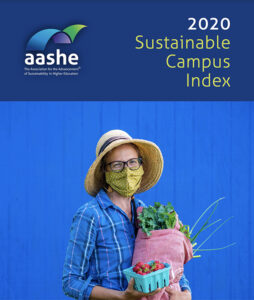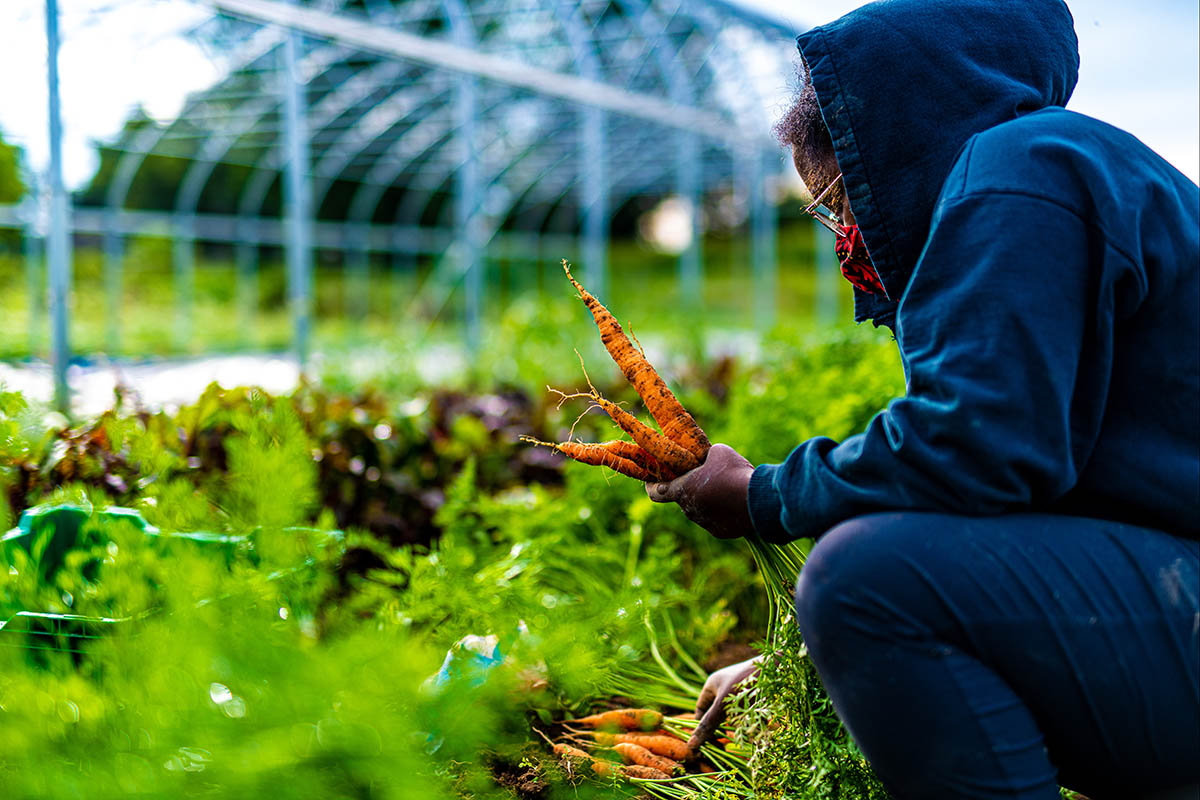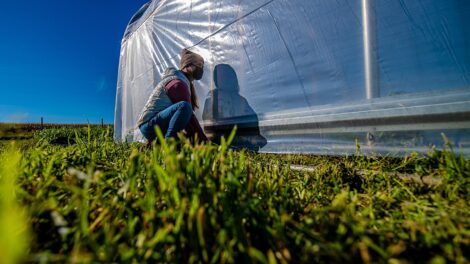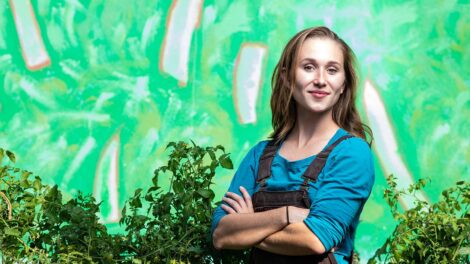College ranks in top 10 for food and dining; receives silver rating for overall commitment to supporting a sustainable campus

LaFarm’s Lisa Miskelly is featured on the 2020 cover of the Sustainable Campus Index.
By Katie Neitz
Lafayette College has been recognized as a top performer in the 2020 Sustainable Campus Index, ranking in the top 10 for in the food and dining category and receiving a silver rating for overall commitment to supporting a sustainable campus.
The Sustainable Campus Index recognizes top-performing sustainable colleges and universities overall and in 17 impact areas, as measured by the Sustainability Tracking, Assessment & Rating System (STARS).
The food and dining recognition reflects the work done at LaFarm, the heart and home of Lafayette’s sustainable food loop.
Lafayette’s three-acre working farm and community garden offers opportunities for students to engage with sustainability through hands-on learning. Each year, LaFarm grows more than 10,000 pounds of produce, which feeds students in dining halls, is sold via an on-campus and online market, and is distributed to members of the local community through a summer veggie stand. Produce from LaFarm also is donated to the on-campus Pard Pantry, a resource for students in need of food and grocery items.

The College’s student-run composting program puts nutrients from the dining halls back into the soils of LaFarm. In 2019, the College’s student compost management team collected and composted 14,491 pounds of campus food waste. By diverting this nutrient-rich resource from the landfill, they generated compost to increase the organic matter in LaFarm’s soil, which increases the soil’s carbon sequestering capacities.
Receiving an overall silver ranking reflects the College’s commitment to reaching carbon neutrality by 2035. The work to reduce carbon emissions can be seen throughout campus, a living laboratory where students, faculty and staff create and test innovative solutions that can help address climate change and promote environmental justice.
“Lafayette’s sustainable food loop is an incredible example of our college’s focus on leveraging our collective knowledge and action to drive real change,” says Delicia Nahman, director of sustainability. “With the contributions. of students and faculty, LaFarm can truly be an initiative that drives social justice and food security into the heart of its work. Lisa [Miskelly] and her team also exemplify the extraordinary impact that collaboration across operational and academic units can make.”
Learn more about sustainability at Lafayette.
About STARS
The Sustainability Tracking, Assessment & Rating System (STARS) is a transparent, self-reporting framework for colleges and universities to measure their sustainability performance. STARS was developed by AASHE with broad participation from the higher education community. The credits included in STARS span the breadth of higher education sustainability and are organized into four categories: Academics, Engagement, Operations, and Planning & Administration. All reports are publicly accessible on the STARS website. For more information, visit stars.aashe.org.




1 Comment
LaFarm is truly one of the very special attributes of Lafayette!
Comments are closed.